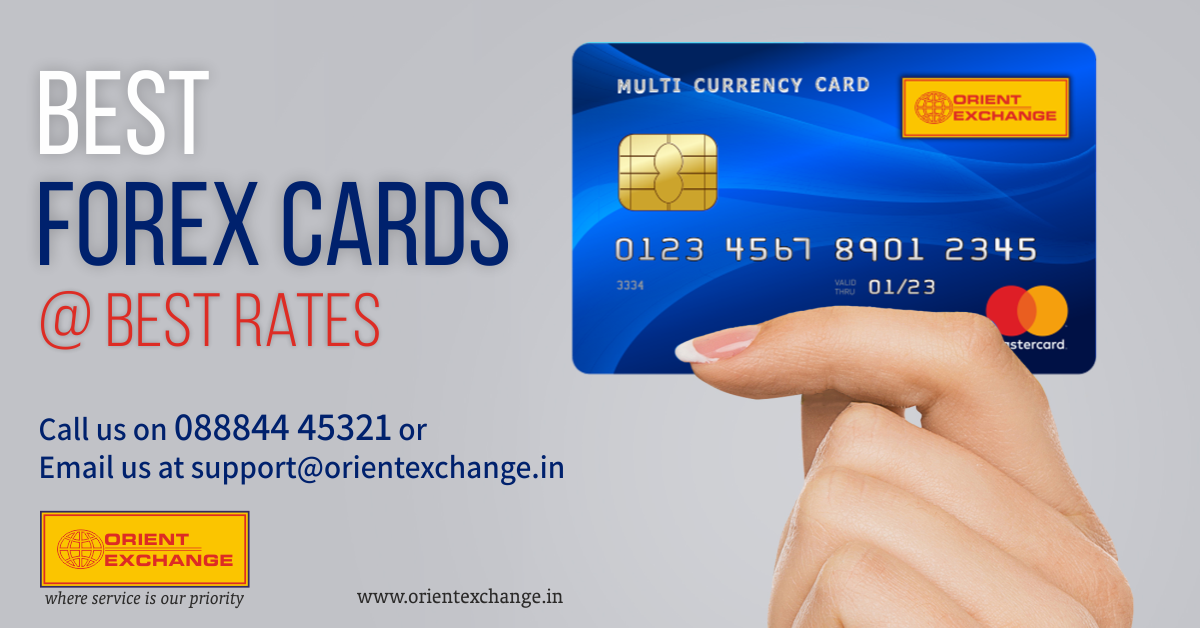Introduction
In today’s globally connected world, financial transactions across borders are a common occurrence for travelers, businesses, and individuals alike. Forex cards, also known as currency cards, have emerged as a convenient and cost-effective solution for managing foreign exchange while abroad. This article explores the advantages and considerations associated with using forex cards in the United Kingdom.

Image: medium.com
Forex cards offer several benefits, including the ability to access competitive exchange rates, avoid hidden fees, and enjoy enhanced security features. Understanding the nuances of forex cards and how they work in the UK context can help you make informed decisions about your financial management during international travel or business operations.
Advantages of Using Forex Cards
Competitive Exchange Rates: Forex cards allow you to lock in favorable exchange rates at the time of purchase, providing transparency and predictability compared to fluctuating currency rates. This eliminates the uncertainty and potential losses associated with unfavorable exchange rates encountered at exchange bureaus or banks.
Avoid Hidden Fees: Traditional financial institutions often charge hidden fees for international transactions, including exchange rate markups, withdrawal fees, and transfer fees. Forex cards offer a transparent fee structure with minimal or no hidden charges, providing cost savings over time.
Enhanced Security: Forex cards incorporate advanced security features such as chip and PIN technology and 2-factor authentication, mitigating the risks of unauthorized transactions. The ease of locking and unlocking the card remotely in case of loss or theft provides peace of mind.
Wide Acceptance: Forex cards are widely accepted at ATMs, point-of-sale terminals, and online merchants globally, ensuring convenience and flexibility while traveling or making international payments.
Real-Time Monitoring: Many forex card providers offer mobile apps or online portals that provide real-time account monitoring, transaction history, and currency conversion rates. This allows users to stay informed about their expenses and manage their funds effectively.
Considerations for Using Forex Cards
While forex cards offer several advantages, it’s essential to be aware of certain considerations:
Transaction Limits: Some forex cards may impose daily or monthly transaction limits, which can be a constraint for individuals or businesses with anticipated high-volume spending.
Inactive Fees: Certain forex card providers may charge inactivity fees if the card remains unused for a specified period. It’s important to use the card regularly to avoid these fees.
ATM Withdrawal Fees: Forex cards may incur ATM withdrawal fees, although some providers offer reimbursement for a limited number of withdrawals. Understanding the fee structure and ATM network compatibility can help minimize costs.
Currency Conversion Fees: While forex cards offer competitive exchange rates, some providers may charge a small fee for each currency conversion.
Comparison and Research: To choose the best forex card for your needs, it’s crucial to compare different providers, check fees, and read reviews to make an informed decision that aligns with your travel patterns and spending habits.

Image: bestcardinfo.com
Should We Use Forex Card In Uk
Conclusion
Forex cards can be a valuable tool for individuals and businesses engaging in international financial transactions. By offering competitive exchange rates, avoiding hidden fees, and providing enhanced security, forex cards can optimize financial management while abroad. However, it’s important to consider transaction limits, inactive fees, and potential currency conversion fees to make an informed decision. By carefully evaluating the advantages and considerations discussed in this article, you can harness the benefits of forex cards and enjoy cost-effective, secure, and convenient financial transactions in the United Kingdom.






